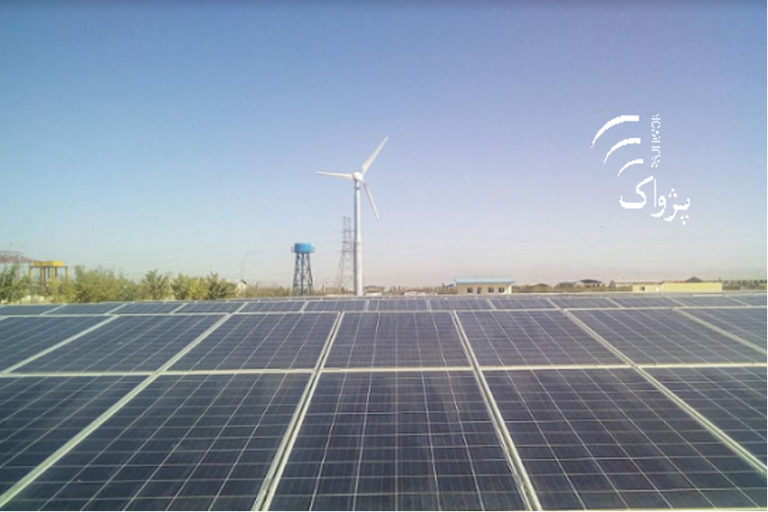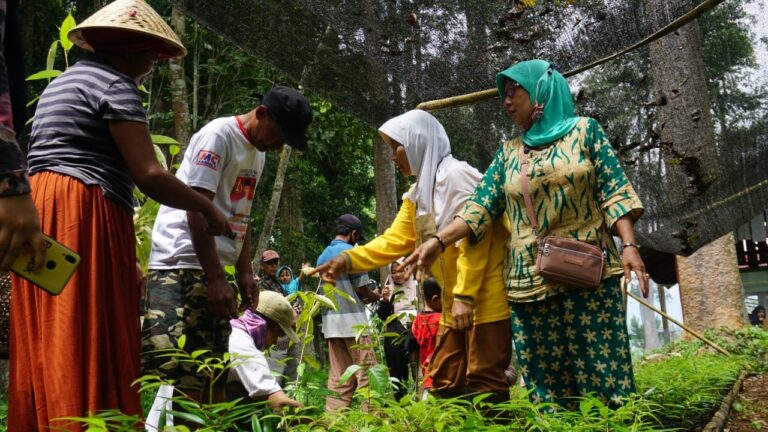Indonesia, as the world’s fourth-most populous archipelagic country, faces serious challenges related to climate change and increasing energy needs. With rising global temperatures and the increasingly pronounced impacts of climate change, such as floods, droughts, and rising sea levels, Indonesia needs to find solutions that not only meet energy needs but are also sustainable and environmentally friendly (World Bank Policy Brief, 2023). In this context, biomass energy has emerged as one of the promising alternatives to support national energy security and reduce greenhouse gas (GHG) emissions. Biomass energy comes from organic matter, including agricultural waste, forestry waste, and industrial waste (Ministry of Energy and Mineral Resources, 2024).
Indonesia has a vast biomass potential, estimated to reach 146.7 million tons per year (Indonesian Ministry of Energy and Mineral Resources, 2023). The primary sources of this biomass include oil palm waste, rice straw, rice husks, and sawdust. By making optimal use of these resources, Indonesia can reduce its dependence on fossil fuels and increase the contribution of renewable energy to the national energy mix. The Indonesian government has set an ambitious target to improve the use of renewable energy in the national energy mix. In the National Energy General Plan (RUEN), the government targets the portion of new and renewable energy to reach 23% by 2025. One of the concrete steps taken is the application of biomass co-firing in Steam Power Plants (PLTU), where biomass is mixed with coal to produce electricity (Renewable Energy Indonesia, 2024).
Through this scheme, it is hoped that carbon emissions from the energy sector can be significantly reduced. The development of biomass energy not only provides environmental benefits but also the potential for improving the local economy. With the increasing demand for biomass, new business opportunities in the agriculture and forestry sectors can be created. Farmers can generate additional income by selling their agricultural waste as biomass feedstock. In addition, the development of the biomass industry can create new jobs in the collection, processing, and distribution of biomass raw materials. This is in line with the government’s efforts to encourage community-based economic growth and create a sustainable circular economy. By utilising waste as an energy source, Indonesia not only reduces emissions but also improves people’s welfare.
Biomass Energy Policy
The government’s policy in the development of biomass energy is reflected in the Regulation of the Minister of Energy and Mineral Resources (ESDM) No. 12 of 2023 concerning the Utilization of Biomass Fuel as a Fuel Mix in Steam Power Plants (PLTU). This policy provides a legal basis for the use of biomass as a cleaner and environmentally friendly alternative fuel. In addition, the government also encourages research and development of biomass processing technology to improve the efficiency and effectiveness of its use (Ministry of Energy and Mineral Resources, 2023)
In its implementation, the biomass co-firing program at coal-fired power plants is the main focus. Co-firing allows the use of up to 10% of biomass without requiring significant modifications to existing infrastructure, thus providing an opportunity for coal-fired power plants to adapt to the use of renewable energy sources while maintaining existing power generation capacity (CNBC Indonesia, 2023). Thus, the transition to the use of clean energy can be carried out gradually. The utilisation of biomass energy not only provides environmental benefits but also the potential to improve the local economy. With the increasing demand for biomass, new business opportunities in the agriculture and forestry sectors can be created. Farmers can generate additional income by selling their agricultural waste as biomass feedstock. In addition, the development of the biomass industry can create new jobs in the collection, processing, and distribution of biomass raw materials.
This is in line with the government’s efforts to encourage community-based economic growth and create a sustainable circular economy. By utilising waste as an energy source, Indonesia not only reduces emissions but also improves people’s welfare. Support from various parties, including the Ministry of Energy and Mineral Resources and the Ministry of Finance, is critical in realising this policy. The Ministry of Energy and Mineral Resources has stated its commitment to support the co-firing program as a concrete step towards achieving Net Zero Emission (NZE) by 2060 (Finance, 2024). In addition, harmonisation of regulations between ministries is also needed to ensure the smooth implementation of biomass policies. With all these efforts, Indonesia has the potential to not only meet its energy needs but also contribute significantly to global efforts to overcome climate change through the sustainable use of renewable energy resources.
Challenges in Implementation
Although the potential and benefits of biomass energy in Indonesia are enormous, the implementation of this policy is not without challenges. One of the main challenges is the low level of investment in renewable energy projects. Many investors are still hesitant to invest due to the high-risk perception and regulatory uncertainty surrounding the sector. In addition, the infrastructure for biomass processing and distribution is also limited, which hinders the optimal use of this resource. Significant investment is needed to build efficient biomass processing facilities and adequate distribution networks so that the supply of raw materials can be guaranteed. Therefore, collaboration between the government and the private sector is essential to accelerate the development of this infrastructure and create a more attractive investment climate.
Another challenge that needs to be overcome is the lack of education and public awareness about the benefits of biomass energy. People need to be convinced that switching to renewable energy sources such as biomass is not only good for the environment but also economical in the long run. Through effective education programs, the public can understand the importance of switching to clean and sustainable energy. The government, together with non-governmental organisations (NGOs), must actively carry out counselling campaigns on the use of biomass and its impact on the environment and local economy. By raising public awareness of the benefits of using renewable energy, it is hoped that more people will be willing to invest in this green technology.
In facing these challenges, the government needs to create policies that support the development of biomass energy as a whole. This includes providing fiscal incentives, establishing clear regulations, and ensuring the sustainability of the supply of biomass raw materials. With a comprehensive and collaborative approach, Indonesia can optimally utilise the potential of biomass energy to support national energy security while reducing the impact of climate change. These efforts will not only help meet domestic energy needs but also contribute to the achievement of greenhouse gas emission reduction targets, thereby creating a more sustainable future for future generations.
Conclusion
The policy of utilising biomass energy in Indonesia is a strategic step in encouraging national energy security while reducing the environmental impact of the use of fossil fuels. With its great potential and strong government policy support, Indonesia has the opportunity to become a leader in the development of biomass-based renewable energy in Southeast Asia. Joint efforts are needed to overcome the challenges of investment, infrastructure, and public education so that the potential of biomass energy can be optimally utilised. With a comprehensive and collaborative approach, Indonesia can realise its vision of clean and sustainable energy security for future generations.
In the future, Indonesia needs to continue to develop innovative policies that support the sustainable use of biomass energy. This includes the preparation of incentives for investors in renewable energy projects as well as increasing the production capacity of biomass raw materials through sustainable agricultural practices. In addition, further research on biomass-to-energy conversion technology should be encouraged to improve the efficiency of the production process and reduce operational costs. With these measures, Indonesia can not only meet its energy needs but also contribute significantly to global climate change mitigation. Thus, biomass policy is not just an alternative energy source; it is an integral part of the national strategy to confront the challenge of climate change while ensuring economic and social sustainability for all Indonesians.










+ There are no comments
Add yours